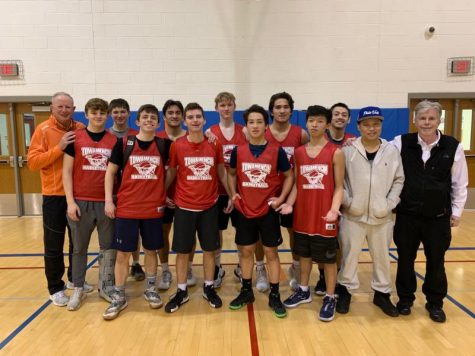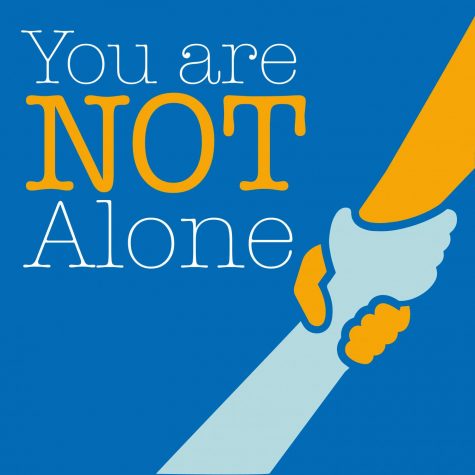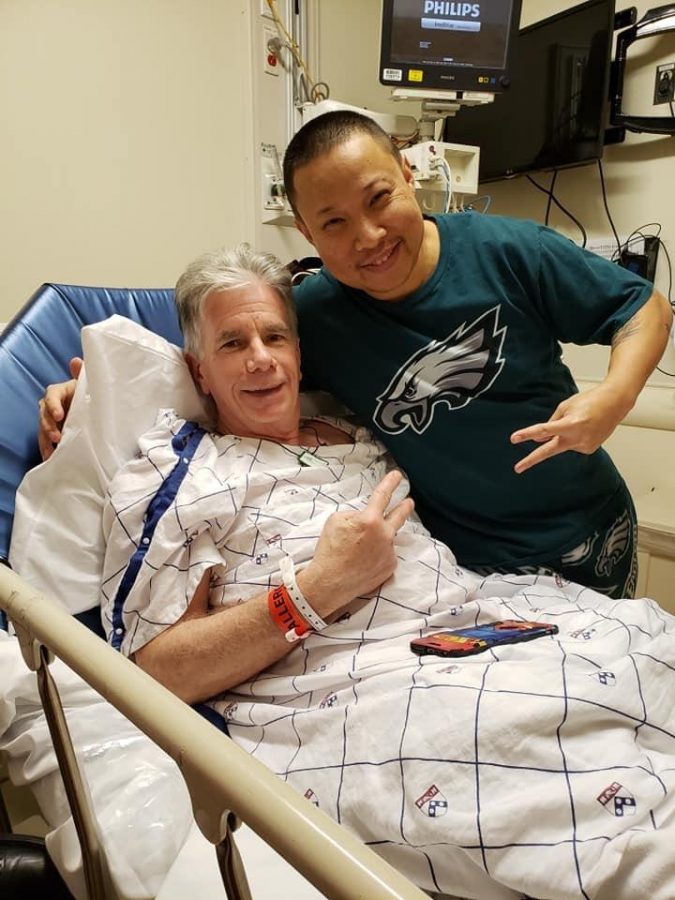“Reid”ing between the lines: the power of caring and a kidney
Sometimes friendship means going very far beyond a simple “how are you.”
TOWAMENCIN – Sone Saysana’s life was bursting at the seams, or so it appeared: six siblings, three children, a wife, and two kidneys. But in an ironic twist of fate, his quantities and qualities were thrown out of balance. Over time, both kidneys had nearly failed, leaving him weary and in search of a miracle.
“I was stuck on that dialysis machine for eight to ten hours, and there were days where I wanted to give up. There were days where I was just like, ‘this can’t be my life,’” Saysana commented. He had struggled for years with the relentless, draining effects of kidney failure; little did he know that a chance encounter from his recent past would net him a fighting chance.
“About four years ago, my nephew Preston Saysana had just moved up here, to the Towamencin area… he really didn’t know [anybody]… and he wanted to play basketball,” explained Saysana.
His research led him to the Towamencin Youth Association, which happened to be holding tryouts in the North Penn School District.
Said Saysana, “one of the coaches – his name was Doug Kyle… introduced me to some of the players [and coaches]… to see if I was interested in coaching. And I had never coached before, but it was definitely something that I thought about, you know, to help Preston [feel more comfortable].” During a subsequent league meeting, one coach, Saysana recalled, “welcomed me with open arms.”

Saysana (second from right) and Reid with their Towamencin Youth Association basketball team.
That coach was Howard Reid, a cheerful father of three hoping to share his love of basketball and life with high school students – like his son, Dylan, who attends North Penn High School with Saysana’s own son Donovan and nephew Preston. “I always had the highest respect for [Sone] because you could tell he was a great human being, a good dad… and clearly he loved [his nephew] a lot,” said Reid.
The two met frequently throughout that basketball season and into the next summer, when Reid discovered Saysana’s medical challenges one evening while they chatted over a game of cards. Upon finding out that Saysana had been awaiting a donor, Reid casually offered to get tested. Though thankful for Reid’s offer – “it was a great gesture” – Saysana “was pretty confident that [his] siblings were going to be a match.”
As summer crept towards fall, however, Sone’s siblings began to “wash out” of contention for kidney donation due to health issues like high blood pressure and diabetes. Reid reiterated his request.
“I said, ‘I’d be more than glad to get tested… it’s an honor to do it,’” he stated.
Reid outlined the process he underwent to be considered as a donor. First, “you fill out a form and you answer some questions” about your health to see if your blood type matches the recipient’s. Next, prospective donors undergo a variety of physical and psychological tests intended to “weed out” people who would be at risk for complications during or after the surgery.
Reid’s wife, Jennifer, was “100% supportive” as he continued to successfully pass each level of testing.
“I was always concerned about letting Sone and his family down… so many people had washed out during the process and the evaluation, so I kind of waited until it was definitely a go, that we were given a green light, before I talked to [my kids, Dylan, Erin, and Shannon],” explained Reid. They were also supportive.
“As they went down the line, one after another – you know, they were being denied, denied, denied… when Howard was a match, my mind was blown. I couldn’t believe it… for him to even go through with everything, even filling out the form… to me, that meant a lot.” Saysana continued, “when we [wife Kim, son Donovan, and daughters Peyton and Taylor] found out that Howard was a match… it was like a weight off [our] shoulders… it was like a roller coaster ride, because for my brothers, it was like ‘yes, no, yes, no.’ Finally, someone was a definite yes.”
“We knew for a while that my dad was going to get a transplant, it was just unsure who he’d get it from so I was a bit surprised when I found out that the person who would be donating the kidney would be my coach,” said Donovan, Saysana’s son. “After the operation, I would say that we were relieved, and knew things would be getting better going forwards,” he finished.
The kidney transplant was successfully completed on February 11th, 2020.
NEW KIDNEY, NEW START
“When we got transplanted, it was at the University of [Pennsylvania], and because March is International Women’s Month, I want to put this out there: our team was full of female surgeons, female nurses, female assistant nurses – an all-female team… they deserve the credit, because they did an awesome job… [my scar] healed up perfectly,” Saysana commented.
Both Reid and Saysana are home recovering, but they don’t plan on resting for long. Beginning on April 1st (yes, really), they are launching a podcast entitled “You Are Not Alone.”
“Everyone carries around some sort of pain… we all have these things we keep under the surface that we don’t talk to people about. And very often, it’s a burden… it could be depression, it could be a kidney, it could be anything,” noted Reid. “There’s stuff that doesn’t go on social media that we hide… we only put the good stuff out there. But it’s kind of nice when someone cares about that other side.”
Citing the prevalence of issues such as divorce, PTSD, isolation, and grief, Reid and Saysana expressed the desire to use their story as a “jumping-off point” to catalyze a wide range of discussions about compassion and healing. The pair also plans to invite experts to the podcast, to provide further insight and advice to people who cannot otherwise afford professional help.
According to its press release, “This podcast is a beacon of hope for those feeling lost and alone in the darkness of despair to let them

Saysana and Reid’s podcast aims to shed light on a variety of difficult issues and provoke discussions about friendship and mental health.
know there is hope and help. Each week, we share hope, humor, compelling stories, and – most importantly – a path forward for overcoming life’s toughest real-world challenges. No subject is off limits, including depression, suicide, unemployment, isolation, racism, disease, loneliness, crippling student debt – even waiting for an organ transplant. This podcast is hosted by Ding “The King” Saysana and Howard “The White OG” Reid. These two “blood brothers” with different backgrounds are experts at overcoming adversity and are joined by special guests who can help show the way. If you’re feeling alone in a sea of despair, Ding and Howard are searching for you and won’t leave you behind.”
“Basically, our whole podcast is just going to be a broad genre of all these types of topics, to help out all these types of age groups, ethnic groups, and genders” – in short, a comprehensive reflection of the North Penn community, relayed Saysana, adding, “we’re going to be here to help. We can relate.”
“Part of the reason why we wanted to do this is to make sure we convey the message to everyone within the high school – it’s all about service and [looking after] each other… we’ve had an absolutely wonderful experience with the whole North Penn School District and the people there,” Reid added. “It could be a big problem or a small problem, but you really aren’t alone… [Sone] felt really alone, and that’s not the case at all in life. We’re really here for each other.”
During his experience, “I learned that… the kindness [of] someone that I never grew up with, someone that I only knew for a couple years, was willing to risk his life for me. That, to me – there were no words to really describe it… my faith has been restored in humanity,” Saysana mused. “I’m definitely proud of the community. The community actually stepped up and helped me out big-time, and I was definitely surprised by that.”
Said Donovan, “something I learned was to always reach out and find new people, get out of your comfort zone. I know my father would’ve never met Howard if he didn’t,” he concluded.


